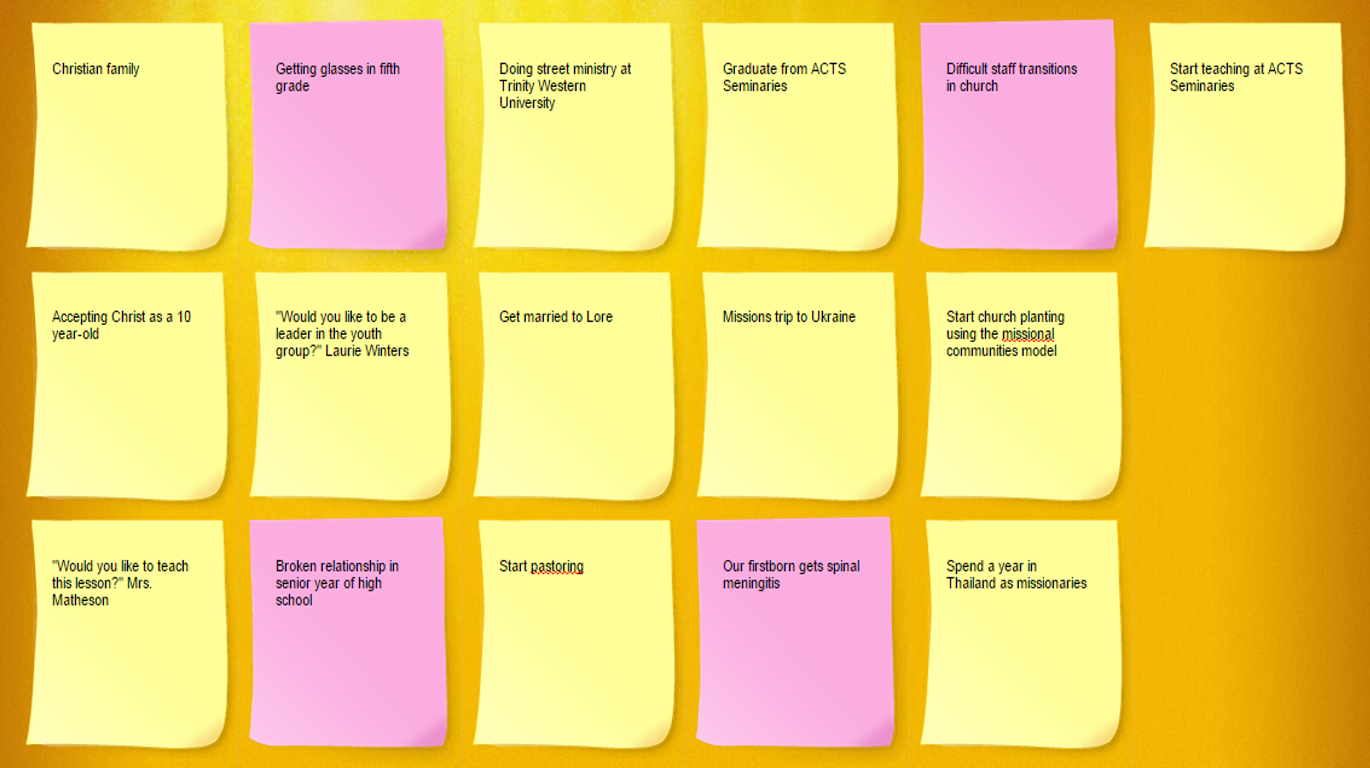Creating a Personal Timeline – Gaining Perspective on the Past to Help Guide You Today
 When I first created my personal timeline, I experienced affirmation, healing, and a greater sense of God’s movement in my life. At times, I felt sad over missed opportunities or painful situations. Yet, I also rejoiced, as I saw God mixing the defining moments and seasons into something good.
When I first created my personal timeline, I experienced affirmation, healing, and a greater sense of God’s movement in my life. At times, I felt sad over missed opportunities or painful situations. Yet, I also rejoiced, as I saw God mixing the defining moments and seasons into something good.
In the Old Testament, the Israelites would often erect stones of remembrance as a reminder of God’s provision and faithfulness. In a similar way, your personal timeline is a way of identifying markers in your life that point to significant events that God used (or can use) to shape you. I am so thankful that God can bring good out of even the most painful event in our lives. This does not mean that we minimize what happened, but we recognize that God is able to redeem even our most painful experiences.
Here are four steps for creating your personal timeline:
1. Identify the Pleasant and Painful Moments/Seasons in Your Life
Using one colour of post-it notes for pleasant experiences and another colour for painful events (or colour-coding entries in a spreadsheet/table or using Chazown’s personal timeline tool), brainstorm some of your defining moments or seasons of life. Some of my defining moments are times when people spoke into my life by simply asking a question or making a statement (e.g. "Randy, would you like to teach this lesson to the rest of the class?" and "I would like you to be a leader in this group."). Others occurred over a longer period (e.g. growing up in a Christian family). Put one defining moment/season on each post-it note. At this point, don’t worry about putting them in chronological order. Come up with approximately 20-30 events to start.

2. Arrange Your Experiences in Chronological Order and Give Your Timeline Chapter Titles
Arrange your post-it notes chronologically in columns in a legal-sized folder or on a 14x17 piece of poster board. On different coloured post-it notes, come up with three to five chapter titles for the different seasons of your life. For example, as a young adult I went through several liberating experiences. I have called that chapter in my life, “My Renaissance.”
3. Identify Lessons

 One of my heroes, Mother Theresa, had a driving sense of purpose. In her own words, her life’s ambition was “to love the least of these; to touch the dying, the poor, the lonely and the unwanted.”
One of my heroes, Mother Theresa, had a driving sense of purpose. In her own words, her life’s ambition was “to love the least of these; to touch the dying, the poor, the lonely and the unwanted.”